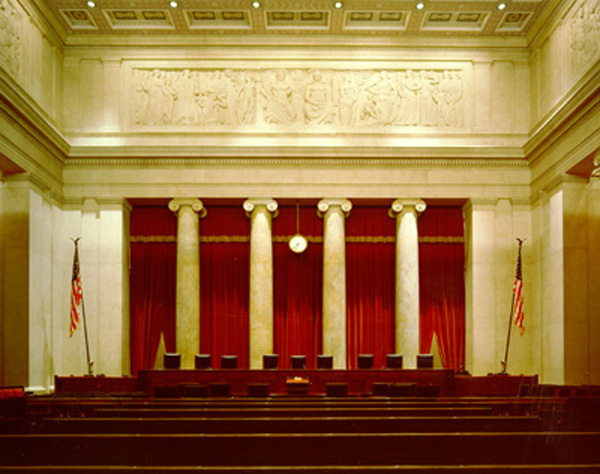The Ruth Institute has posted the transcript of a National Review Online Symposium from a while back, and I want to highlight two excerpts. To read the entire article, follow the link below.
First up, here is John C. Eastman:
In his dissent in today’s marriage cases, Chief Justice Roberts asks, “Just who [in the hell] do we think we are?” (Okay, I added the parenthetical phrase, but it certainly fits the tone.) He questions the “legitimacy” of the Court’s decision, calling it an “extravagant conception of judicial supremacy.”
Justice Scalia calls the majority decision “pretentious” and “egotistic,” an exercise of “hubris” that threatens the very authority of the Court. Because the Court depends ultimately on the other branches even for enforcement of its judgments, he added, each decision that it issues based on raw will rather than legal rule moves the Court “one step closer to being reminded of [its] impotence.” That is as bold an invitation to noncompliance with a decision of the Court as has ever issued from the pen of a justice, approaching those offered by Abraham Lincoln and Thomas Jefferson in their respective first inaugural addresses.
Justice Thomas urges a return to originalism as a remedy, but, as Justice Alito points out, today’s decision proves that “decades of attempts to restrain this Court’s abuse of its authority have failed,” thereby suggesting that some kind of structural reform is necessary to restore a proper sense of checks and balances.
So with those views in mind, it seems there are a couple of options open to those who not only disagree with the marriage ruling but are profoundly concerned about the Court’s arrogation of power to itself to decide all manner of policy disputes. Noncompliance, of the sort suggested by Justice Scalia and Presidents Lincoln and Jefferson before him. Quite frankly, though, the fallacy of judicial supremacy is now so firmly rooted in our body politic that it would take a leader of Lincolnian wisdom and courage to advance such a course with any credibility.
Here is Jennifer Roback Morse:
After the Obergefell ruling, we can expect the following:
- Parenthood will no longer be considered a natural reality to be recorded by the government but the creation of the state for the benefit of adults.
- Some children will have a legally recognized right to know both of the parents. Other children will be blocked by the state from knowing both parents.
- Some children will have three or more people named as parents on their birth certificates.
- Parenthood by contract among interested parties will become legally enforceable by the states.
- Third-party reproduction will continue unregulated and unabated. By the time people figure out that this is a human-rights abuse, it will be so widespread and entrenched that it will be extremely difficult to root out.
The Ruth Institute calls on the federal government and the governments of the states to enact the following measures:
- Record accurately the genetic parents on every birth certificate, for every child. The state should not be hiding or falsifying information on legal documents.
- End third-party reproduction.
- Place responsible limits on divorce where children are present and where no marital fault has been committed.
Read more: The Ruth Institute
Image credit: www.morallaw.org.

